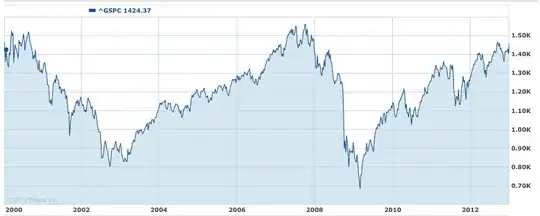I just cleared about $65k from my bonus. I don't want this sitting in cash, but at the same time prefer to move into stocks/bonds over time (e.g. I don't want to invest all $65k at one price, and risk doing it when the market is at a short-term high. I'd rather spread the risk out over time - i.e. typical reasons for dollar cost averaging). I already invest $120/day in an S&P 500 fund, and $150/week in an emerging markets fund (this is factored out of my normal take home pay). If it's relevant, I have a net worth of about $725k so the bonus amount is considerable.
How long is reasonable to spread out the investment of the $65k bonus? And is there any intermediate place I should put the money rather than a savings account?
Some additional information:
- Yes, I expect yearly bonuses like this for the foreseeable future (as long as I stay at my current job). I'd roughly expect the bonus amount to increase at a rate of 10-15% per year.
- I'm currently 33. So retirement is a ways off, obviously.
